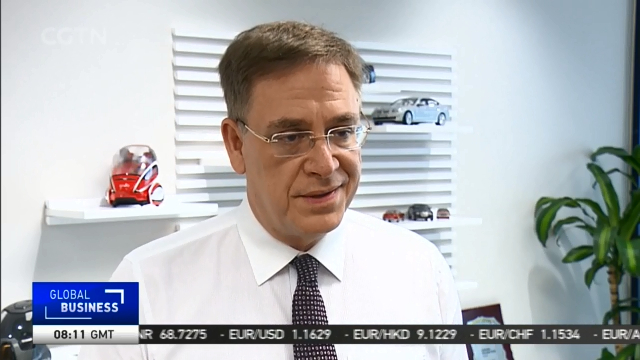
16:57, 02-Jul-2018
China's Opening Up: New energy car sector sees further reforms
Updated
16:55, 05-Jul-2018
02:31

One highlight of the new negative list is the easier access it allows to the new energy car manufacturing sector. The move is seen as an effort by the Chinese government to accelerate competition and growth within the auto industry. How will THAT, along with a string of other new policies in the sector, affect Chinese auto makers? Mi Jiayi has more.
The cancellation of shareholding limits is just one of several measures. China has taken recently to make it easier for foreign auto makers to enter China. Starting July first, the import duty on foreign cars including new energy vehicles will also be reduced. On the other hand, domestic auto makers have seen reductions in the subsidies they receive on the production of new energy cars. Combined, these policies mean tougher competition for domestic new energy car makers.
BILL RUSSO, FOUNDER & CEO AUTOMOBILITY LIMITED "Somewhere I think incentives are also giving company as an opportunity to sell products that may not be as competitive because it gives customers a reason to buy the product with incentive that they probably wouldn't otherwise consider. So by reducing incentives it forces manufacturers to deliver a better product."
Analysts say Chinese new energy car makers still have an advantage over their foreign competitors, however, and that now is a good opportunity for quality Chinese EV makers, as long as they focus on improving their competitiveness."
ZHAO XIANG, AUTOMOBILE ANALYST ANALYSYS "Foreign new energy vehicles have more advantages in terms of technology, but when they enter China to compete with local makers, domestic players still have an edge over them. They know more about the market and localization, and they have lower risks in terms of regulation, so that will cost them less than foreign players."
Currently, domestic EV manufacturing is dominated by BYD and SAIC's Roewe, with prices ranging between 150,000 yuan and 400,000 yuan. They primarily target consumers with moderate budgets. Foreign brands' new energy cars such as Tesla usually cost more than 400,000 yuan, and can go as high as one million yuan. Zhao says the new policies will narrow the price gap, but that consumers are still likely to hold off on purchases until they can see more clearly how prices will evolve. Given that, the sales of new energy vehicle are not likely to see big increases in the short term.

SITEMAP
Copyright © 2018 CGTN. Beijing ICP prepared NO.16065310-3
Copyright © 2018 CGTN. Beijing ICP prepared NO.16065310-3